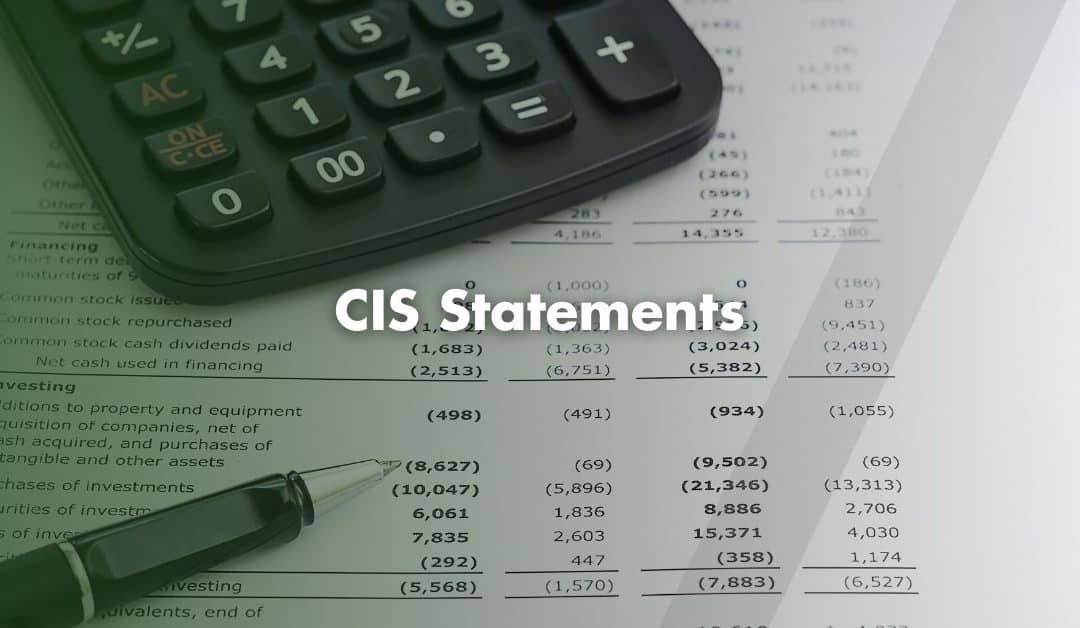Contractors under the Construction Industry Scheme (CIS), must deduct tax from payments made to subcontractors. CIS Statements are the actual documents which detail how much the contractor paid and deducted. Additionally, each statement covers one tax month and contractors must issue them within 14 days of the tax month ending.
The contractor then sends these payments to HMRC each month, on the subcontractor’s behalf. These deductions are advance payments towards the subcontractor’s yearly tax and National Insurance bill.
Read more: CIS for Contractors
Read more: CIS for Subcontractors
Monthly CIS Statements and Returns
Contractors must issue CIS Statements and submit a CIS Return each month. The CIS Return details each subcontractor, the payments made and any tax deductions during the tax month. Contractors must also provide the same information to subcontractors through the CIS Statements.
Before making any deductions, contractors must verify each subcontractor with HMRC. Verification confirms the correct deduction rate. It also protects contractors from applying the wrong rate. Even when no deduction applies, the subcontractor(s) should still receive a CIS Statement.
What to Include in CIS Statements
CIS Statements do not follow a fixed format. However, each statement must include specific information to meet HMRC’s requirements.
Every CIS Statement should include:
- The contractor’s name, address and tax reference number
- The subcontractor’s name, address and Unique Taxpayer Reference (UTR)
- HMRC Verification Number (for unregistered subcontractors who receive 30% deductions)
- The tax month covered by the statement
- The gross payment amount (excluding VAT)
- The cost of qualifying materials
- The amount of CIS deducted
- The final net payment made
Even subcontractors with Gross Payment Status should receive a statement. In these cases, the statement should clearly show that there were no deductions.
When to Issue CIS Statements
Contractors must issue CIS Statements by the 19th day of the month following the tax month end.
For example: Payments between 6 June and 5 July fall within the same tax month. Contractors must submit the CIS Return and issue statements by 19 July.
If a subcontractor receives multiple payments in one tax month, contractors may issue either:
- One combined statement
- Separate statements for each payment
Both options meet HMRC rules, as long as contractors meet the deadline.
Losing a CIS Statement
Subcontractors should first ask the contractor for a replacement statement. Contractors should clearly label replacements as duplicates to avoid confusion. If the contractor no longer trades or fails to respond, subcontractors should contact HMRC.
They must include:
- Their full name, address and UTR
- The contractor’s name and address
- The contractor’s tax reference (if known)
- The tax months with missing statements
- The reason the original statements remain unavailable
Calculating CIS Deductions
CIS deduction rates depend on the subcontractor’s registration status. Contractors must confirm this status before making any payment.
The standard deduction rates are:
| Deduction Amount | For Who |
|---|---|
| 20% | Registered Subcontractors |
| 30% | Unregistered Subcontractors |
| 0% | Subcontractors with Gross Payment Status |
To calculate deductions properly, contractors should:
- Remove VAT from the payment
- Deduct qualifying materials
- Apply the correct CIS rate to the remaining balance
Subcontractors should also provide evidence of material costs. If not, contractors must make a fair estimate.
Preventing Deductions with Gross Payment Status
Subcontractors can apply for Gross Payment Status, which allows contractors to pay them in full. The subcontractor then manages their own tax payments.
To qualify, subcontractors must:
- File all tax returns on time
- Pay all tax bills when due
- Earn at least £30,000 per year (excluding VAT and materials)
HMRC applies strict checks before approval. Subcontractors must also maintain good compliance to keep this status in future years.
Contact Us
We are not just accountants; we are Chartered Accountants with one of the most reputable and premium accounting bodies. We are registered and regulated by ACCA; so you can rest assured that you are in good hands. Knowing this, don’t hesitate to get in touch with us if you require assistance: Pi Accountancy | Contact Us
This article is for general informational purposes only and does not constitute legal or financial advice. While we aim to keep our content up to date and accurate, UK tax laws and regulations are subject to change. Please speak to an accountant or tax professional for advice tailored to your individual circumstances. Pi Accountancy accepts no responsibility for any issues arising from reliance on the information provided.

